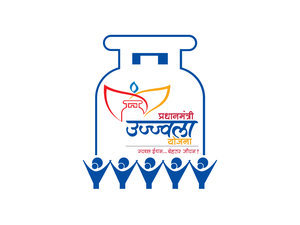
Mumbai, Aug 28 (IANS) Families in Indian villages switching to exclusive use of LPG would save more than 1,50,000 lives a year due to reduction in both indoor and outdoor pollution that arises from ‘chulha (wood/coal stove)’ smoke in household kitchens, according to a study by global public health organisation Vital Strategies.
The report comes out strongly in favour of the Pradhan Mantri Ujjwala Yojana (PMUY) stating that the subsidies to provide LPG to poor families were justified on the ground of health gains for the population.
Household air pollution remains a leading source of ambient air pollution across India, disproportionately affecting people in rural areas and negatively affecting air quality in urban areas.
Sustained, near exclusive use of clean household energy is required to substantially reduce exposure to household air pollution and to promote public health at the population level, the report observes.
“The PMUY program, the government’s flagship effort to scale clean household energy for poor households, has ushered in unprecedented Liquefied Petroleum Gas (LPG) access,” the report states.
LPG is a popular fuel used for cooking. Yet, many households continue to rely on solid fuel for household energy needs.
The report presents findings from a cost-effectiveness analysis of various state-level subsidy options to highlight the health benefits of sustained use of LPG in households compared to solid fuels.
Such a transition would also add around 37 lakh "healthy years" to the population, the study states.
More than half these benefits would be in four states – Uttar Pradesh, Bihar, West Bengal, and Madhya Pradesh as they have the highest population and the lowest LPG use according to the report.
“The cost-benefit analysis for all the scenarios met the WHO threshold for a health intervention,” according to the study.
The reduction in PM 2.5 exposure would not be confined to homes as ‘chulha’ smoke also contributes to pollution in the wider atmosphere outside the houses.
Pollution levels have come down due to the higher use of LPG, ranging from 4 per cent in Telangana to 28 per cent in Bihar, according to the study.
Meanwhile, as many as 10.33 crore deposit-free LPG connections have been issued under PMUY to women from poor households across the country as of August 1, 2024, Minister of State for Petroleum and Natural Gas, Suresh Gopi informed the Lok Sabha, earlier this month.
The target to release eight crore connections was achieved in September, 2019.
To cover the remaining poor households, the second phase of the scheme Ujjwala 2.0 was launched in August 2021 and till January 2023, 1.60 crore connections had been released.
Further, in view of fresh requests, in September 2023, the Government approved the release of additional 75 lakh PMUY connections.
The public sector oil marketing companies have completed the release of these 75 lakh PMUY connections as of July 8, 2024, the minister said.
